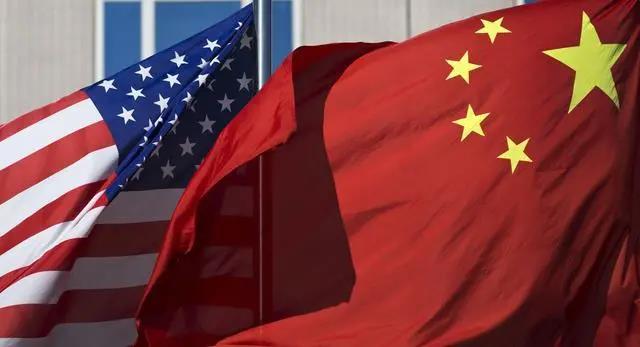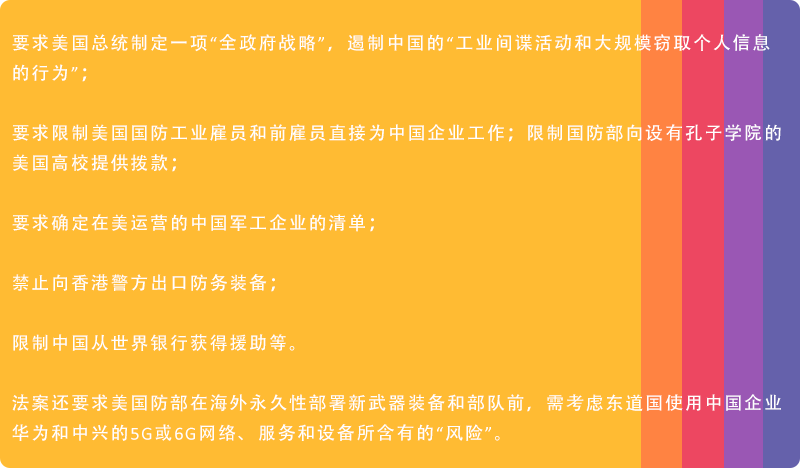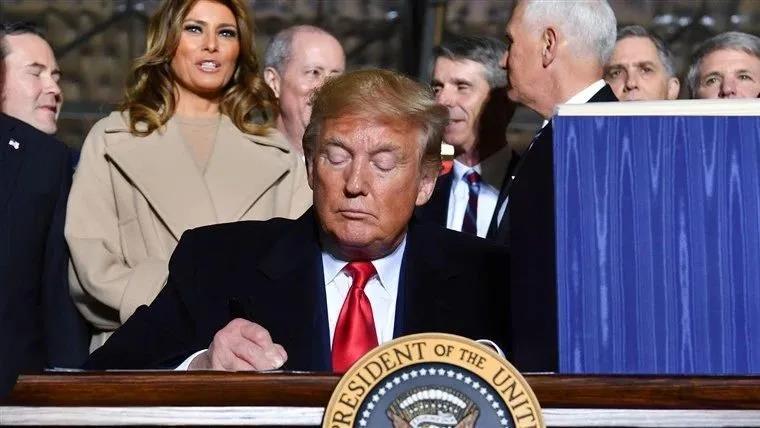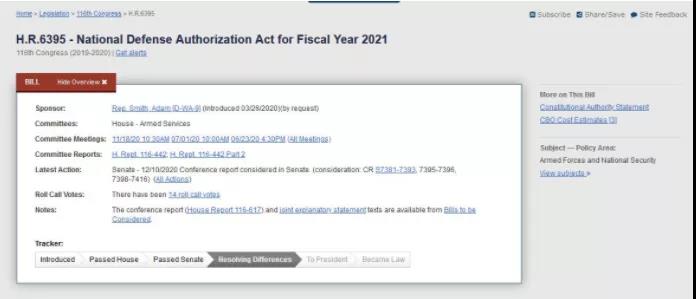Keep targeting China! Up to 740 billion dollars! China - related clauses of nearly 40, technology, business in the column!
For a long time, the United States has been trying to suppress China, constantly provocative from political and economic aspects, and even unilaterally launched a variety of strikes in the hope of slowing Down China's development
1.
The U.S. Senate approved the national Defense Authorization Act for the fiscal year 2021 by a vote of 84 to 13 On December 11, ap and USA Today reported December 13.
On Tuesday, the House of Representatives passed the bill by a vote of 335 to 78.
This year's bill includes nearly 40 china-related or china-related provisions, covering military, technical, academic, economic and trade fields, "reflecting the comprehensive challenges posed by China," VOICE of America reported Wednesday.

At that point, Mr. Trump would have 10 days to sign or veto the bill.
If he does not sign it within 10 days, the bill automatically becomes law.
The Defense Authorization Act had been law for 59 consecutive years.
2.
The bill would provide $740.5 billion in defense spending in fiscal year 2021, covering everything from military salaries to equipment purchases and foreign affairs.
As an important part of deterring China, the bill would launch a new Pacific Deterrence Program and allocate $2.2 billion for the program in fiscal year 2021.
"The Pacific Deterrence Program will send a strong signal to China and any potential adversary, as well as to our Allies and partners, that the United States is deeply committed to defending our interests in the region," the Senate Armed Services Committee said in a summary of the bill.
Other China-related provisions of the bill include:

3.
Reports say the bill still needs To be signed by President Trump before it becomes law.
But Mr Trump could veto this year's defence authorization bill.
In a social media post before the House vote on December 8, Trump called on Republican lawmakers to vote against the bill, saying he would use his presidential veto to veto it even if Congress passes it.
The same day, the White House also issued a statement saying that the defense Authorization act for fiscal year 2021 "limits the president's ability to protect the national security of the United States," as well as Trump's ability to withdraw U.S. troops from Germany, Afghanistan and South Korea.
On December 13, Trump even declared on Twitter: "I will veto, China is the biggest winner of our new defense bill!"
In this tweet, all letters are in capitals!
Media speculation about Trump's veto may have to do with social media companies and the renaming of military bases.

According to the U.S. Constitution, if the president exercises his veto over a bill passed by Congress, the bill will be revoted to Congress. If both houses of Congress have passed the bill by a two-thirds majority, Congress will override the veto.

In the current vote, both the House and Senate have voted for it by more than two-thirds.
But several Republicans, including House Minority Leader McCarthy, said that despite today's vote, they would stand with the president if he vetoed the bill.
The Washington Post said the plan was a move by Congress to "provide the incoming Biden administration with a new framework for confronting a rising China".
Michael O 'Hanlon, director of foreign policy studies at the Brookings Institution, explained that while the bill gives the Defense Department direction, it also leaves enough room for The Biden team to plan its China strategy.
